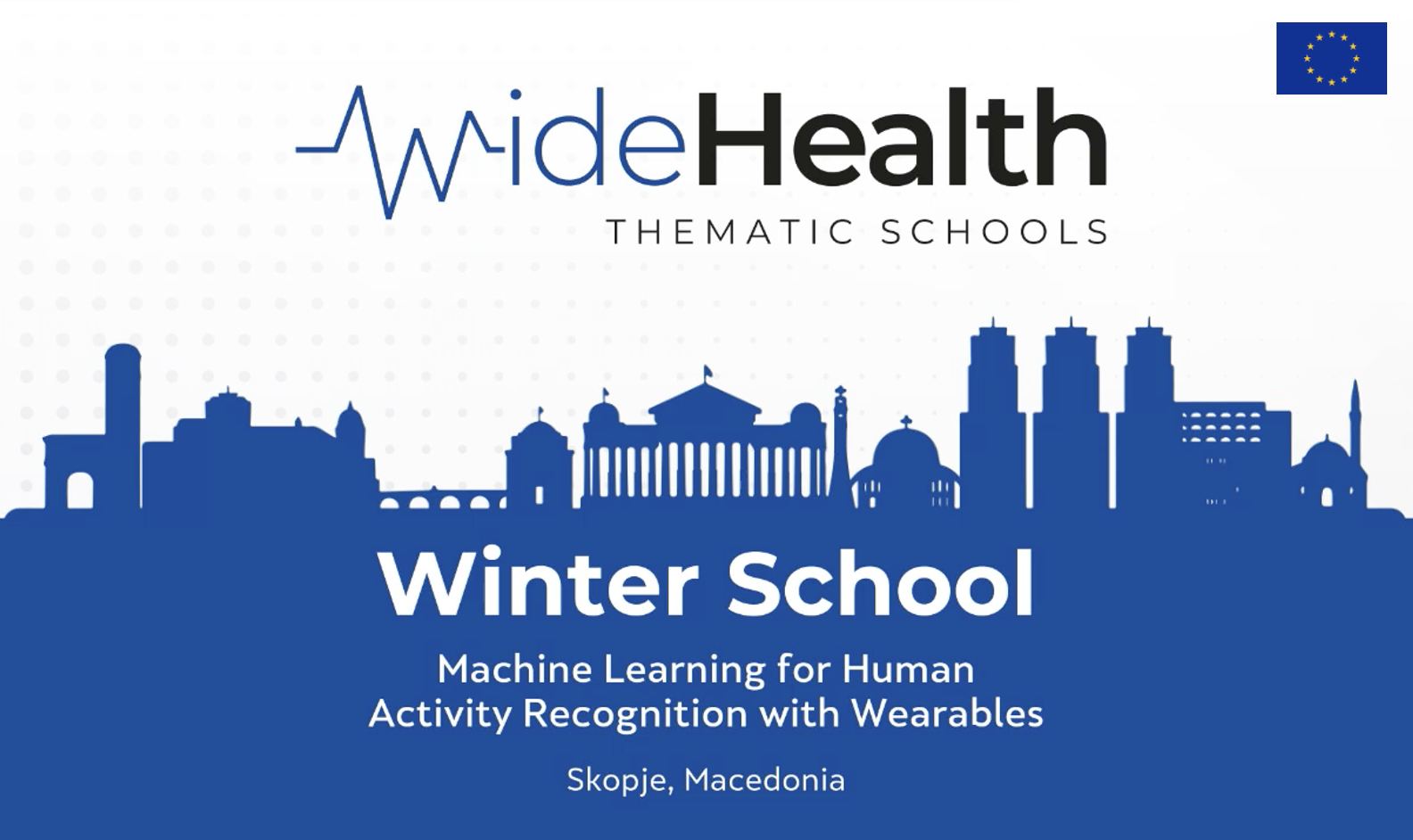
Machine Learning for Human Activity Recognition with Wearables
WideHealth Thematic School on e-Health & Pervasive Technologies was the 1st WideHealth Thematic school, held in Skopje, North Macedonia, in 2022. The school consisted of theoretical lectures on data-driven healthcare, which can be found in the course Data Analytics and Pervasive Health, and practical exercises focused on human activity recognition using wearables, which are included in this course.
Students enrolled in this course will get a hands-on introduction to machine learning for human activity recognition. This is a beginner-level course as it starts with setting up the programming environment, Python libraries, IMU sensor data, and data processing and continues with machine learning, from feature extraction to classification and feature selection. Finally, students will be introduced to Human Activity Recognition (HAR) library and are given a sample pipeline.
Winter school participants were involved in a Kaggle competition designed especially for the WideHealth Thematic School in Skopje. The competition is completed, but the students enrolled in this course are still invited to modify the given pipeline and compare their solution to the existing entries on the leaderboard.
Prerequisites for the course:
- The students need to have (or create) a Kaggle account – https://www.kaggle.com/
- This is a beginner course, but basic coding (for loops, functions, if/else statements) & high school-level math (arithmetic, algebra) are welcome
Curriculum
- 5 Sections
- 8 Lessons
- 0 Quizzes
- 0m Duration
Module I - Kaggle Programming Environment
- Setting up Programming Environment
Module II - Python and Useful Tools and Libraries
- Python and Useful Tools and Libraries
Module III - Introduction on how to build a machine learning model for HAR based on data from inertial sensors
- IMU Sensors Data, Filtering Techniques
- Feature Extraction
- Classification
- Error Analysis, Feature Selection
Module IV - HAR library
- HAR Library
Kaggle HAR Competition
- Sample pipeline